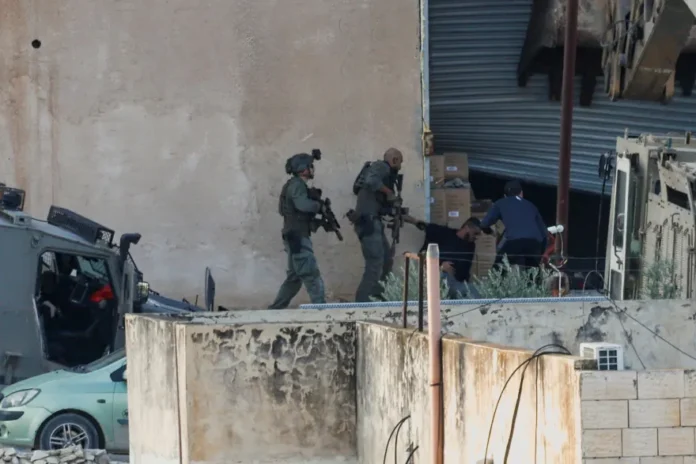The United Nations Office of the High Commissioner for Human Rights’ statement was not another routine diplomatic note; it landed like an internal cry from the international body — shock, alarm, and the grave characterization of an “extrajudicial execution.” A heavy phrase on the scale of international relations, yet one that is increasingly used to describe events in the West Bank, particularly in Jenin, which has become over recent years a theatre where the restraint on the use of force appears to have loosened.
The recent incident — the killing of two Palestinians by Israeli police during a raid — reveals a deep shift in operational logic: from engagement to targeted liquidation. Footage aired by Palestinian television appears to show two unarmed men in surrender. Still, their lives ended in seconds, in front of cameras, in a setting where the perpetrators seem to feel they face no accountability.
1. Beyond the incident: a gradual erosion of the international legal framework
When UN spokesperson Jeremy Laurence calls the event an “execution outside the judicial framework,” he touches the wound: international law no longer appears as an enforceable structure but as a moral vocabulary without teeth. This denunciation, forceful in words, also highlights the UN’s impotence: the pattern repeats and international institutions can often seem more like chroniclers of abuses than protectors of rights.
2. The social context: a generation living daily in a grey zone between life and death
Jenin’s scene is not isolated; it crystallizes deep social accumulations. A Palestinian youth grows up under siege, unemployment, and persistent repression — encountering violence as a routine condition of life. On the Israeli side, the radicalization of segments of the youth and the normalization of securitarian rhetoric fuel the dehumanization of the other. This daily friction between two societies moving in opposite directions creates fertile ground for repeated extrajudicial killings.
3. The political dimension: the militarization of state conduct and the erosion of a political horizon
Over recent years, Israeli policy has increasingly militarized the handling of the West Bank. Successive, more right-leaning governments have redefined “security” in ways that legitimize excessive force. In the absence of credible political avenues, the West Bank is treated as a security dossier alone — and nocturnal raids, in some cases, become mechanisms of field-level liquidation.
4. Images as battleground: who owns the narrative of rights?
The footage showing the two men surrendering is not merely evidentiary; it is part of a larger struggle over narrative. Images have always been as powerful as bullets in this conflict. But the presence of cameras, instead of automatically deterring violence, can become a helpless witness: visibility does not necessarily translate into accountability.
5. UN implications: shock or turning point?
The “shock” conveyed by the UN Human Rights Office carries two ambiguous implications:
-
First, an admission that an illegal threshold has been crossed;
-
Second, an acknowledgment of institutional failure to protect civilians.
The crucial question remains: is strong international language sufficient to halt repetition? Or has “shock” been reduced to a ritualized, procedural condemnation without follow-through?
Analytical conclusion
What happened in Jenin is not an isolated event; it signals a structural shift in Israeli handling of the Palestinian question that erodes the boundary between law and lived reality, between security and punishment, between state authority and de facto armed power. The term “extrajudicial execution” moves beyond legal terminology to describe a daily experience for Palestinians — lives that depend on an instantaneous, brutal decision by an armed agent operating in a space where accountability is suspended.


